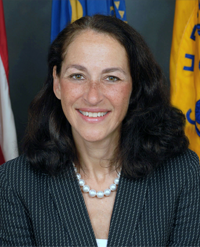By Margaret A. Hamburg, M.D.
Drug shortages are two words that no one wants to hear—not patients, not health care professionals, and not me.
 FDA has been working hard to prevent and mitigate drug shortages. In 2011, the number of medications in short supply hit 251. Addressing drug shortages must be a top priority for us at FDA because these are medications that people need to stay healthy, to treat their illnesses, and even, in some cases, to stay alive.
FDA has been working hard to prevent and mitigate drug shortages. In 2011, the number of medications in short supply hit 251. Addressing drug shortages must be a top priority for us at FDA because these are medications that people need to stay healthy, to treat their illnesses, and even, in some cases, to stay alive.
This year, we’ve taken significant steps to expand our efforts and to engage in new ways with industry. Between Jan. 1 and Sept. 30, 2012, FDA worked with drug manufacturers to help avert the shortage of 145 drugs. Many critical medicines used to treat cancer and conditions such as attention deficit hyperactivity disorder (ADHD) are no longer in short supply.
However, drug shortages are still a serious problem, one that may be temporarily impacted by Ameridose LLC’s voluntary recall of all of its unexpired products. Ameridose, located in Westborough, Mass., is managed by some of the same people as the New England Compounding Center—which produced the drug that is implicated in the deadly, multi-state outbreak of fungal meningitis. An inspection of Ameridose was initiated as part of FDA’s ongoing investigation of the outbreak.
FDA recommended that Ameridose recall its sterile drugs because we could not be assured of the sterility of those products. However, this recall may affect supplies of certain life-saving drugs for some health care systems. FDA has identified a number of Ameridose products—including drugs used during surgery and to treat medical conditions that include congestive heart failure—that were on the current drug shortages list before the recall.
We also know that the supply of other drugs may be affected by the Ameridose recall. That’s why FDA is taking proactive steps to minimize the impact this recall may have on current drug shortages, and to prevent other shortages from occurring.
For recalled medications on the current drug shortages list, FDA is taking the same actions it has used successfully to mitigate other shortages.
- FDA is working with manufacturers of these drugs, requesting that they ramp up production if they are willing and able to do so.
- For any manufacturers of these drugs that may be experiencing manufacturing or quality problems, FDA is offering assistance to enable them to produce shortage drug products that are safe and high quality.
- As with shortages of any critical products, FDA will expedite the reviews of any pending applications that could help with addressing the shortages.
- FDA is identifying any additional manufacturers willing to initiate or increase production.
- If manufacturers of critical drugs are not able to meet U.S. patient needs, FDA will explore overseas companies that are willing and able to import foreign drugs to address the shortage. In these instances, FDA evaluates the imported drug to ensure that it is of adequate quality and that the drug does not pose undue risks for U.S. patients.
Since the beginning of the year, the number of advance notifications to FDA of potential shortages has greatly increased. If we know that a problem is on the horizon, we’re able to proactively work with industry, organizations, patients and stakeholders to address it. We have doubled the number of staff members who work in drug shortage prevention and response.
We at FDA are committed to doing everything we can, using all available tools, to prevent or mitigate drug shortages and help keep critically needed products on the market.
Margaret A. Hamburg, M.D., is Commissioner of the U.S. Food and Drug Administration.

